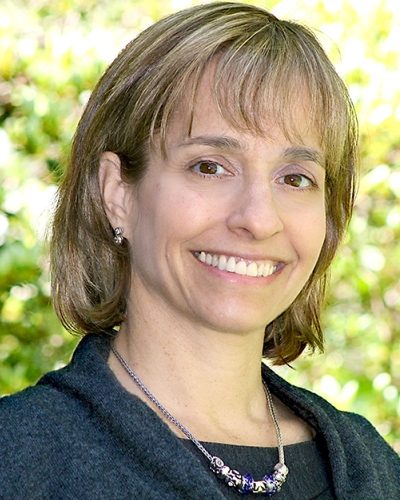Gmar chatimah tovah – may you each be sealed for a good year. It is great to come home to Temple Beth El. You are my family.
Yom Kippur is about return and Yizkor is about return. This hour is about giving us time and space to return to our cherished memories of those we loved who are no longer physically with us.
The journey through grief is unpredictable. You don’t know when it’s going to start. You don’t know when it’s going to end. You don’t know where it will lead you or who you will be when you get there.
On one hand, I am a novice at grief. My only significant loss, but my most significant loss, was my father. He was my mentor and my teacher. When he died in 2000, I had never delivered a major eulogy or sermon without his edits, without his voice, without his help.
It is on these days of awe I feel the pain of his absence most profoundly. He was a rabbi after all, and these Days of Awe were days when we would get to spend uninterrupted time with him.
I have cried countless tears in front of these Torahs during the Avinu Malkeinu as I have missed him. (And when you’re a rabbi leading multiple services, there are many Avinu Malkeinus).
On one hand, I am a novice at grief. On the other hand, I am experienced. In my 22 years of being a rabbi, I have witnessed so many congregants make the journey.
The number of hands I have held of those who are dying, the number of Kleenex I have offered and used myself in wiping tears, and the number of eulogies I have written are too great to count. Yet I strive to incorporate into my life lessons from each congregant who has died.
In 1996, in eulogizing a man named Herman Pressman, I learned from his family that every year Herman would throw a birthday party for himself and on his cake instead of writing “Happy Birthday Herman,” he wrote, “thank you all for coming.” He taught me to make birthdays a celebration of friendship.
Fay Green, who died at the age of 92, taught me that as you age you need to make lots of younger friends and that will keep you young. Jeanette Sacks, who was also in her 90s and looked great, told her granddaughters to always use moisturizer not only on the face but on the neck because you can get wrinkles there too. Don’t go halfway and stop at the chin. Complete the job. So I do that, too.
The journey through grief is unpredictable.
For me, grief hit suddenly. I don’t know what time it was when I got the call that my father died. I don’t remember which sibling called me though I think it was my middle sister Debby. My dad had died in the middle of the night suddenly of a heart attack but my siblings waited till the early morning to call me.
What I do remember is that I was home with my 10 month old and suddenly my new world without my dad left me reeling. I couldn’t get myself dressed. I couldn’t get Max dressed. I was frozen. Time was frozen. The world was frozen.
The rest was a blur – the massive funeral with 900 people, the many nights of minyans with an
overflowing home, going through my father’s things. As my brothers divided the suits and ties, I took a sweatshirt in which I now find comfort at the end of a long day. This tallis I am wearing was his. It is the one that I wear at uptown vigils. This leather folder which held my father’s sermons now holds my sermons. When I have an important speech to deliver, I kiss it like a mezuzah before I share words of Torah.
Sometimes grief comes on slowly – a diagnosis, a battle, a relinquishing of the fight, a letting go and a letting go and a letting go until the last breath arrives. I have sat with our congregants as their loved ones slowly slipped away.
Sometimes grief comes on quickly – a car accident, or in my dad’s case, a heart attack. I have sat with congregants in emergency rooms as they found out their loved one could not be saved from a sudden tragic event.
However it comes, whenever it comes, grief shatters us. Some of us spend years, some of us spend our entire lives picking up the pieces.
Elizabeth Kubler-Ross identifies five stages of the journey of grief – denial, anger, bargaining, depression, and acceptance. While I admire and stand in awe of her scholarship, her stages do not speak to me.
I much prefer those identified by a woman named Katherine Kally that I came upon last week. In her understanding, the journey through grief has four stages – reeling, feeling, dealing, and healing. They are not always distinct. They are not sequential. They can be concurrent.
The first stage is reeling. It is the chaos. The plans. The funeral. The guests. The emptiness. The whirlwind that turns everything upside down. Kally says it is characterized by “shock, denial, disbelief.” And she says, for which I am thankful, “It is the shortest stage of grief.”
Perhaps this is why, in Jewish law, the newly bereft person is exempt from the commandments surrounding prayer – even the motzi before meals. Making plans for a funeral of a loved one is an overwhelming task and for the mourners, it should be the only task.
After or with the stage of reeling comes the stage of feeling. Exhaustion, confusion, sorrow, anger, anguish, guilt, sadness, longing — the missing call, the missing advice, the missing touch, the missing hug. In this stage some of us over eat and some of us can’t eat. Some of sleep too much and some of us hardly at all. Some of us withdraw and some of us crave constant connection. We are lost. We are daunted by life.
Then comes the dealing – the paper work, our loved one’s clothes, their items, their home, our own jobs and parenting and tending to the things that must be done.
And lastly comes healing. It means moving forward. The daily minyan. The weekly service. The prayers. In traditional Judaism, we begin the process of grief by tearing our clothes or a ribbon. I see each prayer of Kaddish as thread slowly sewing up our torn and tattered hearts, lives and souls – day by day, Shabbat by Shabbat, yizkor by yizkor, yahrzeit by yahrzeit.
I bought each of my siblings a book called Grief in our Seasons, so we could each say a nightly reflection and Kaddish to remember our dad who meant the world to each one of us. My Kaddish nightly journey of remembering was spent not always with the book in my hand, but always with my toddler Max in my arms – rocking him to sleep as I said Kaddish.
In this stage of healing, one integrates their loss as part of themselves. Kally writes, “Healing is not about ‘getting over’ your loss but about learning to live with the loss.”
Menachem Rosensaft captures this stage best in his poem called Father. You can substitute the word “mother” if you want.
I used to be part of you, the extension of your being
but now you live within me. You are the spark of my consciousness
I say kaddish for you
with you
as you.
I sing your melodies
And speak your words
hearing your voice in mine
and my eyes too have somehow started to reflect yours
I used to be part of you protected by your presence
by your light
and I always will be
but now I must be more than myself:
your child has become your heir,
your child has become you.
The Torah reading called Nitzavim chanted so beautifully this morning by my close friend Susan Jacobs spoke to everyone standing together at Sinai – men, women, children, foreigners, Israelites, wood choppers, and water drawers.
This time of year is our Beth El Sinai moment where we all stand together and, as we do, we look around to see that so many who are gone. They stood with us last year, even on this bima.
And the Torah tells us, “I have set before you life or death, blessing or curse – choose life.”
Choosing life, in this context, living life, and loving life is the goal through the journey of grief. We can water the grave with our tears or we can choose life and choose to live and love and laugh again.
People often ask me, “What is the best part of being a rabbi – surely, it is the baby namings and weddings?” Yes, I love babies. Their cute bodies and chubby faces make my womb pang with a desire to have more children. Yes, I love the beauty of a wedding couple under the chuppah filled with hope in what the future can bring. But what I am most impacted by is seeing people make it to the final stage of the journey through grief. I value the healing that has happened as congregants move from despair to wholeness to experiencing joy once again. From losing a child to renewing vows. From the loss of young spouse to remarriage. From tragedy to celebrating family simchas once again.
For years, I used to have a small pre-high holiday meltdown. As I said, my dad had helped me with my sermons. He’d fix them when they were off track, find the right words when they didn’t flow, and help me create the right structure when my sermons were unformed and seemingly void of meaning.
Howard Winokur is a grief counselor who can attest to this fact. About once a year, in late August, I’d call and visit his office with unceasing tears – not knowing how I’d stand before all of you with coherent thoughts.
I thought it was simply the stress of the job. But it wasn’t. It was grief.
And then one day, I stopped breaking down before the holidays. Just like I don’t know the hour when I learned of my dad’s death. I do not know the year when I made it through the journey of grief.
But I do know it came. The loss was a part of me. My dad’s voice was inside me.
Four stages of grief – sometimes comingled – reeling, dealing, feeling and healing. We can make it there.
The novelist Harry James wrote: “Sorrow comes in great waves… but it rolls over us, and though it may almost smother us it leaves us on the spot and we know that if it is strong, we are stronger inasmuch as it passes and we remain.”




